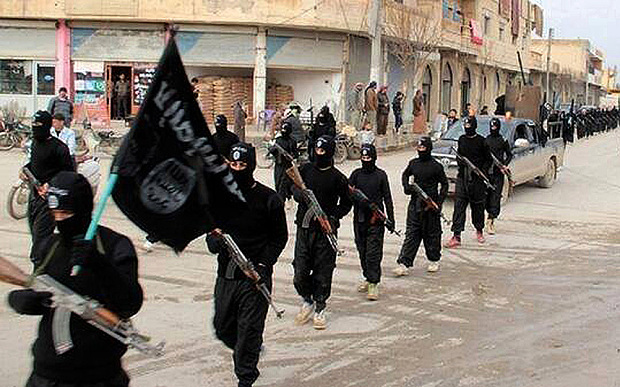In 2014 and 2015, European publics were kept in suspense by daily press reports on the rising numbers of European citizens travelling to Syria in order to join jihadi groups (and, to a lesser extent, Kurdish rebel forces). By early 2018, security agencies estimated that 960 men and women had made their way to Syria and Iraq from Germany, with 150 having died and 300 having already returned to Germany.1
Since then, however, media interest has by and large shifted away to other issues. And while the question of returnees – and the potential threat they might pose – continues to be a concern in security circles, it has receded from view in public debates, at least for now.
Backstory of a ‘foreign fighter’
For some, however, the so-called ‘foreign fighters’ and their journey to the battlefields of the Levant are less easy to forget. This is particularly true for family and friends of those who travelled to Syria. Speaking to Germany’s online magazine Qantara, Sabine Lappe shares the story of her son Christian, who joined ISIS’ in 2015 and died two years later in the wreckage of the terror group’s self-declared ‘Caliphate’.2
The pivotal moment in Christian Lappe’s life appears to have been a grave bout of illness: at the age of 20, the young man was diagnosed with Crohn’s disease. Coming within an inch of death, only to be saved by last minute surgery, seems to have provoked a prolonged quest for meaning, culminating in his conversion to Islam five years later in 2012.
While his mother followed her son’s path to conversion shortly thereafter, tensions quickly developed: becoming increasingly strict in his perceptions of religious duties, Christian scolded her as insufficiently attentive to the obligations of her faith – particularly in terms of gender norms and gender segregation.
Connection with ISIS figures
According to Sabine Lappe, her son’s decisive turn to jihadism occurred when he met 17-year-old Yasmina in 2014: she sought to marry a pious Muslim – and was already planning on travelling to Syria with him. For Lappe, her son’s infatuation with Yasmina led him not only to marry her shortly thereafter but also to acquiesce her project to join the the ‘Caliphate’, declared in June 2014.
Subsequently, Christian Lappe was in in touch with high-level jihadi figures in Germany – including Abu Walaa, at the time seen as ISIS’ main representative in the country. He also briefly encountered Anis Amri, who was to carry out an attack on a Berlin Christmas market in 2016.
Exactions in Syria
In September 2015, Yasmina and Christian departed for Syria. His mother recounts the excitement and happiness her son exuded during irregular phone calls and WhatsApp messages: “as crazy as it may sound, he was there with his heart and soul”, she asserts. “Christian wanted to go down in history and die for the right thing as a German Muslim.”
The consequences of this commitment became gruesomely clear when a video surfaced in September 2016 on an ISIS-linked website: Christian – having adopted the Islamic nom de guerre Abu Issa al-Almani – can be seen recounting his life story. Subsequently, there is footage of a hand being chopped off, presumably for theft. While it remains not fully clear whether it was Christian wielding the blade, the young German can be seen kissing the man’s head after his hand has been severed. According to his mother, his son “became a stranger” to her in that very moment: “I can’t understand how you can do something like this. That’s simply wrong. It’s not in the Koran, not in any surah”.
Yet her son seemed to lead a happy life under ISIS’ increasingly strained rule, sending pictures and informing his mother that Yasmina was pregnant with her grandchild. “The two of them were clearly happy and proud. But the prospect of becoming a father made Christian even more radical”, Sabine Lappe recounts.
A mother’s plight
Then, on August 9, 2017, Christian Lappe died in the Syrian desert near al-Suknah, 150 km south of Raqqa. Pictures and video footage of his dead body were published by sources close to Hizbullah.3
Following her son’s death, religion emerged a source of strength and stability to the bereaved mother: “I find peace in it”, she asserts. Those around her are less inclined to associate Islam with peace, however: Lappe describes her social ostracism in the neighbourhood. As the mother of a terrorist, she is not served at some stores; and her local mosque community has become hostile, fearful that she might bring disrepute onto the congregation.
Sabine Lappe’s testimony sheds light on the plight of friends and family who – after a loved one has joined jihadi factions in Syria and participated in their exactions – struggle to find an explanation for what, on the face of it, seems inexplicable. During the interview, Mrs Lappe is visibly torn between horror at Christian’s deeds and the need to salvage some unsullied memory of the person that was, after all, her son.
Elusive happiness in the ‘Caliphate’
Whether Christian Lappe was truly as happy and contented during his stay in the Caliphate is perhaps an open question. Mrs Lappe does not broach the issue in her conversation with Qantara; yet fellow fighters remember her son ‘Abu Issa al-Almani’ as a feeble character ill-adapted to life in the Caliphate.
While he sought to project an image of strict piety, admonishing the brethren around him to be stricter in their observance, Abu Issa’s religious zeal seems to have been unconvincing: “We did not take that guy seriously, he was a nutcase”, another former ISIS fighter recounts.4
Christian Lappe not only called for attacks to be carried out in Europe in video material released by an ISIS-linked media platform; apparently he and his wife also volunteered to commit a suicide attack in Germany. Yet higher-level ISIS commanders seem to have been unconvinced of the couple’s reliability, surmising that they might simply seek a way to flee ISIS territory: “Everybody knew that they probably just wanted to go back to Germany”, the former fighter asserts.
Enduring questions
Thus, one is left to wonder just how Christian Lappe experienced ISIS’ rule; what he felt and thought at the sight of ISIS’ self-declared ‘Caliphate’; on what basis he participated in the group’s atrocities – and whether, as his time in Syria wore on, he was a fervent believer, an unremarkable follower, or a scared pawn trapped in ISIS’ nightmare. Perhaps he was all of those.
At the end of Sabine Lappe’s testimony, there are therefore almost as many (new) questions as there are answers. This is, in fact, a broader issue in German authorities’ attempts to come to terms with fighters and returnees from jihadi groups: judicial investigations are routinely marred by a lack of evidence concerning the actual events that transpired in Syria and Iraq; and even those former fighters willing to distance themselves from the jihadi cause are put off from cooperating with security agencies by harsh sentencing practices and by a fear of reprisals.5
Even after ISIS’ proto-state has crumbled, in important ways it remains a mystery.
Sources
https://www.br.de/nachricht/der-staat-und-der-schwierige-umgang-mit-syrien-rueckkehrern-100.html ↩
https://en.qantara.de/content/from-germany-to-islamic-state-the-metamorphosis-of-christian-l?nopaging=1 ↩
http://erasmus-monitor.blogspot.com/2017/09/dortmunder-stirbt-in-syrien.html ↩
https://www.bild.de/politik/ausland/isis/dortmunder-isis-jihadist-getoetet-53095098.bild.html ↩
https://www.br.de/nachricht/der-staat-und-der-schwierige-umgang-mit-syrien-rueckkehrern-100.html ↩






